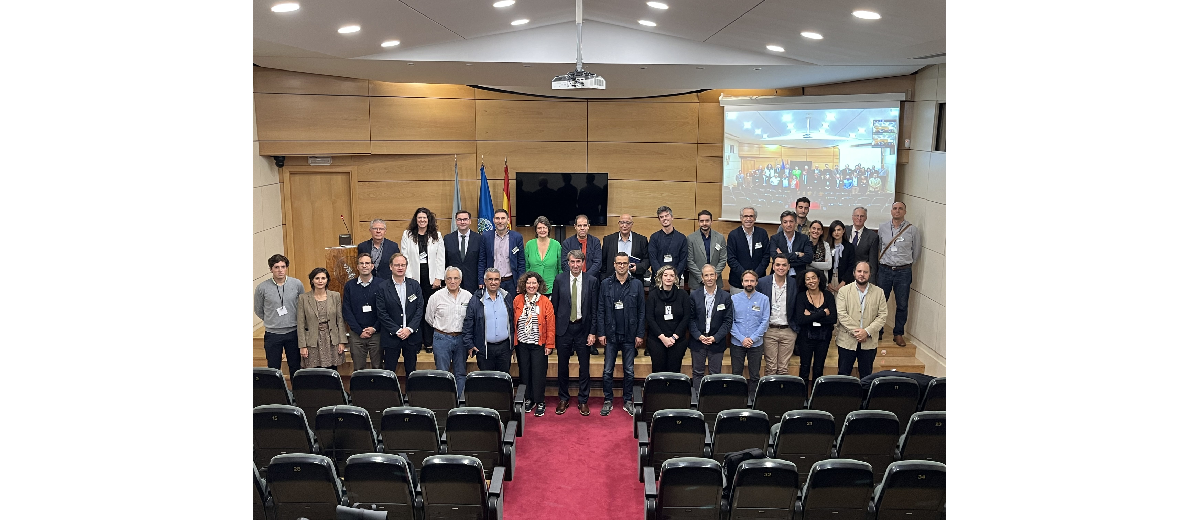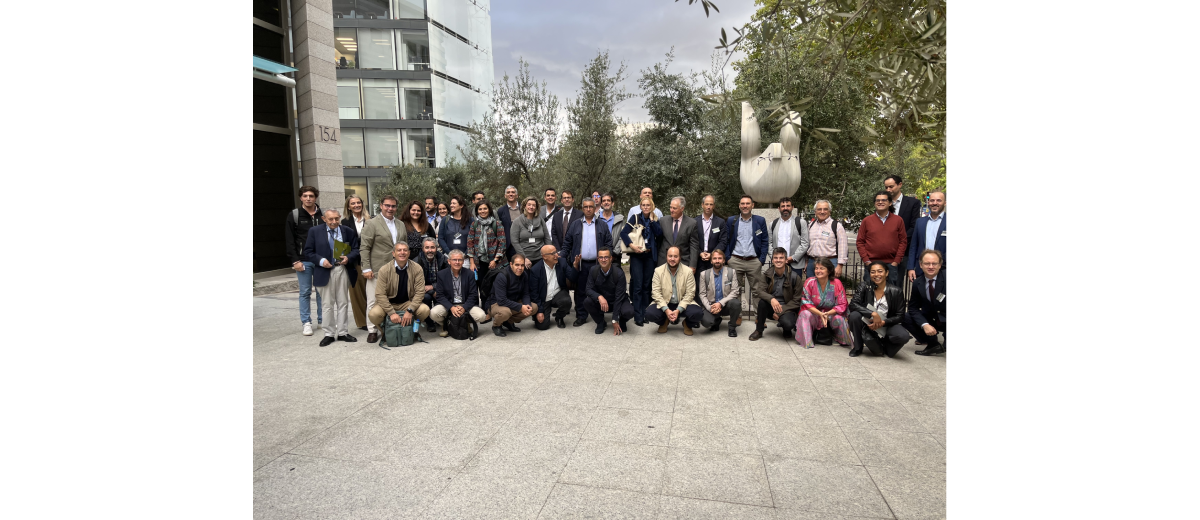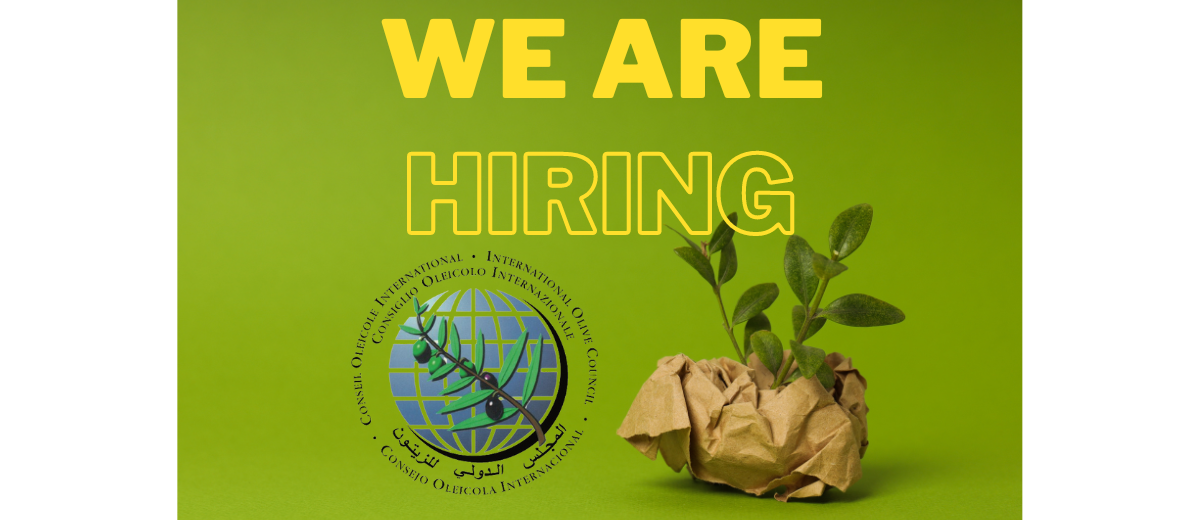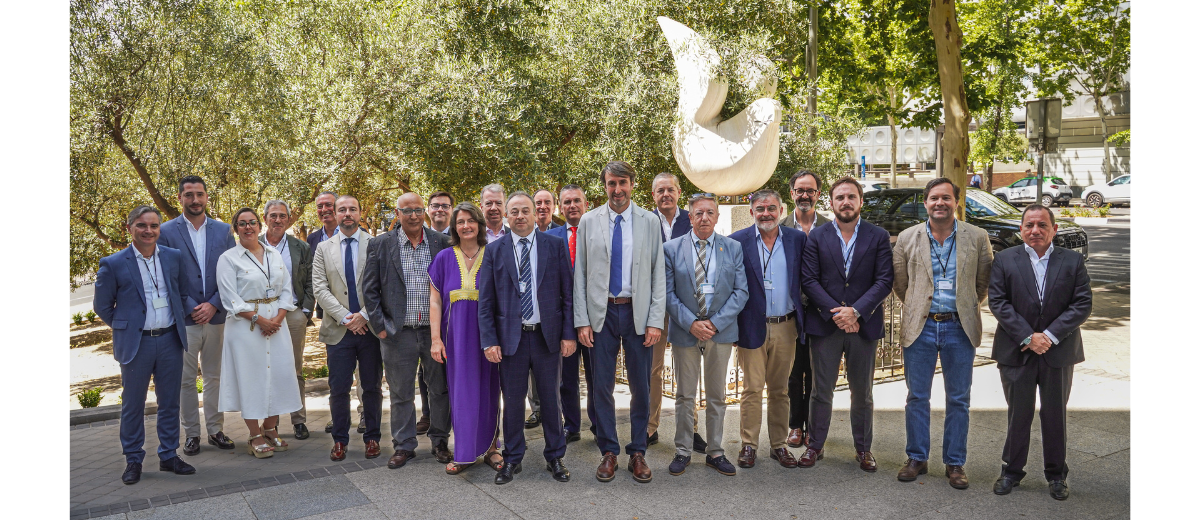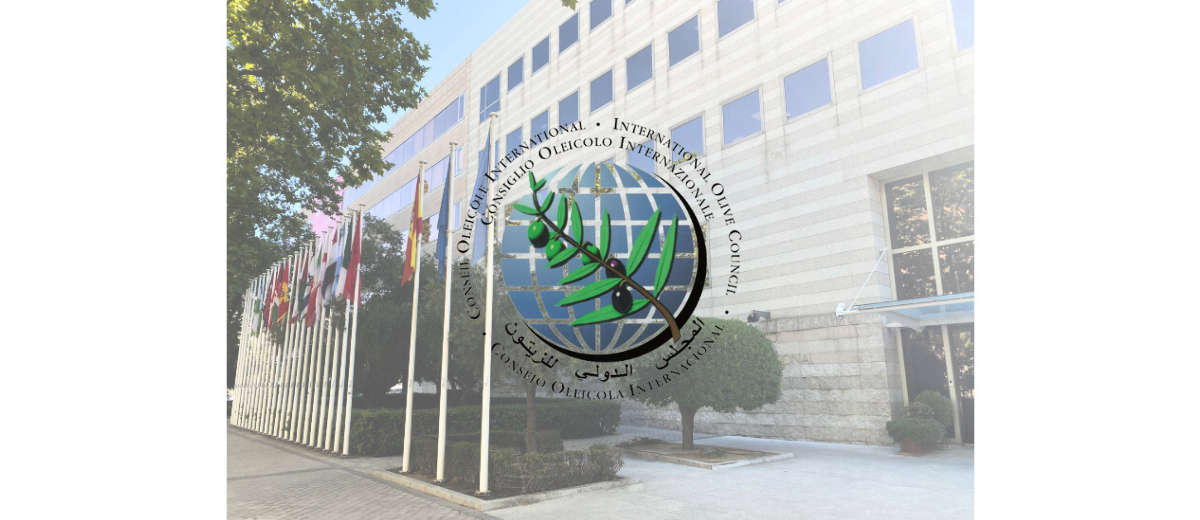The carbon balance of olive groves is a strategic area of work for the International Olive Council (IOC), which is why this intergovernmental organisation has decided to contribute to the development of methodological and policy frameworks aimed at strengthening the role of olive groves as an effective strategy for achieving the United Nations’ climate objectives, and to provide its member states with technically robust tools within the framework of recognised, validated standards that are easy for end users to use. Against this backdrop, the IOC organised an international workshop entitled “Carbon balance of the olive sector: part of the solution against climate change”, which took place at the IOC headquarters in Madrid (Spain) and by videoconference from 17 to 19 October 2023.
The workshop brought together experts from the olive sector, as well as lawyers, policy-makers, project coordinators and representatives of private companies, who are interested in carbon balance assessment, CO2 removal, carbon credit markets, etc., creating a platform for reflection on these key issues. It provided a unique opportunity for participants to exchange experiences, to reflect on the position of the olive oil and table olive sector in terms of its contribution to achieving “CO2 neutrality” objectives, and to consider how the current situation can benefit the sector as a whole.
The main conclusions of this workshop are as follows:
- To the question of whether there is a minimum consensus on the assessment of the carbon balance in order to start developing a methodology, the average response from participants was 3.53/5, which means that this consensus does exist.
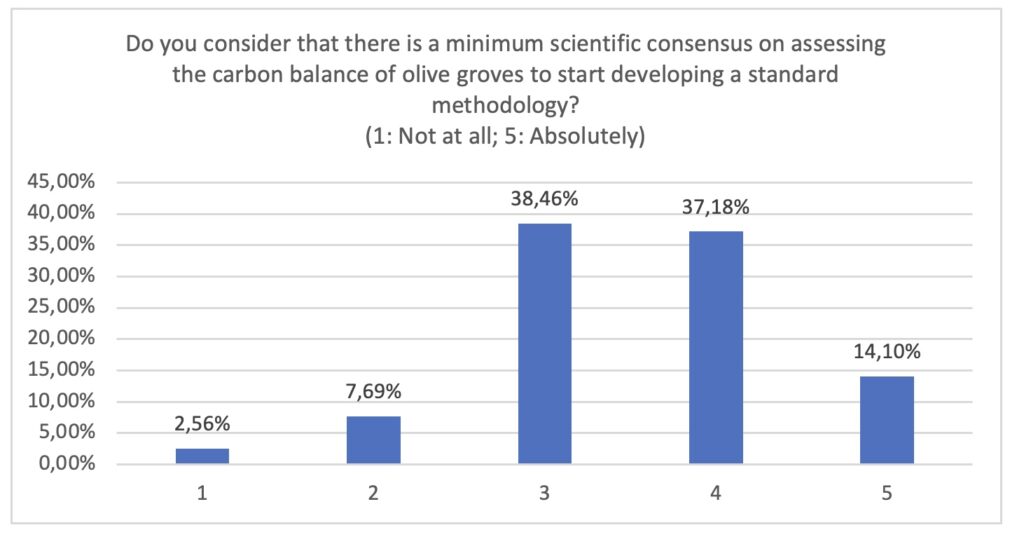
- The main priorities identified for this work were as follows:
- Consider how to establish basic criteria for the olive sector.
- Develop a methodology for assessing the carbon balance of olive groves.
- Model CO2 absorption capacity in olive groves.
- Consider how to adapt the QU.A.L.ITY criteria (QUantification, Additionality, Long-term Storage, Sustainability) to the olive sector.
- Over 90% of participants said that the IOC should provide robust methodologies and tools based on scientific knowledge and facilitate access to these tools, and over 80% said that it was the most appropriate body for defining the rules for the future carbon credit market for olive groves.
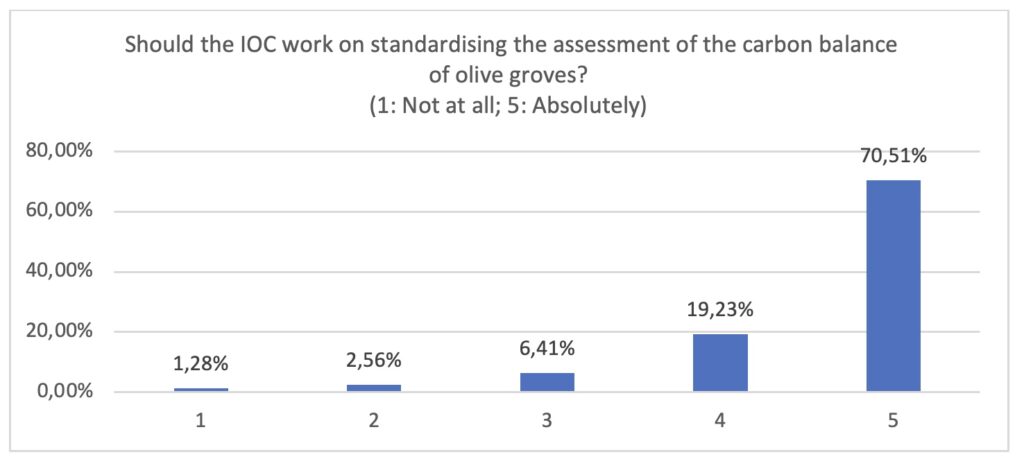
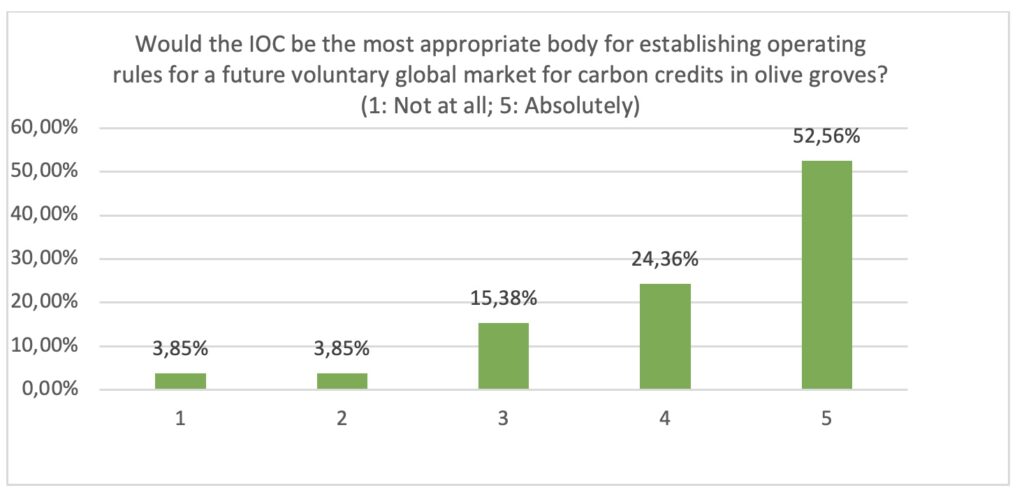
- The current scenario is presented as a great opportunity for the sector, and the aim is for society to associate the olive grove with the concept of sustainability and see it as an effective strategy against climate change: “Olive oil is good for your health and for the environment”.
